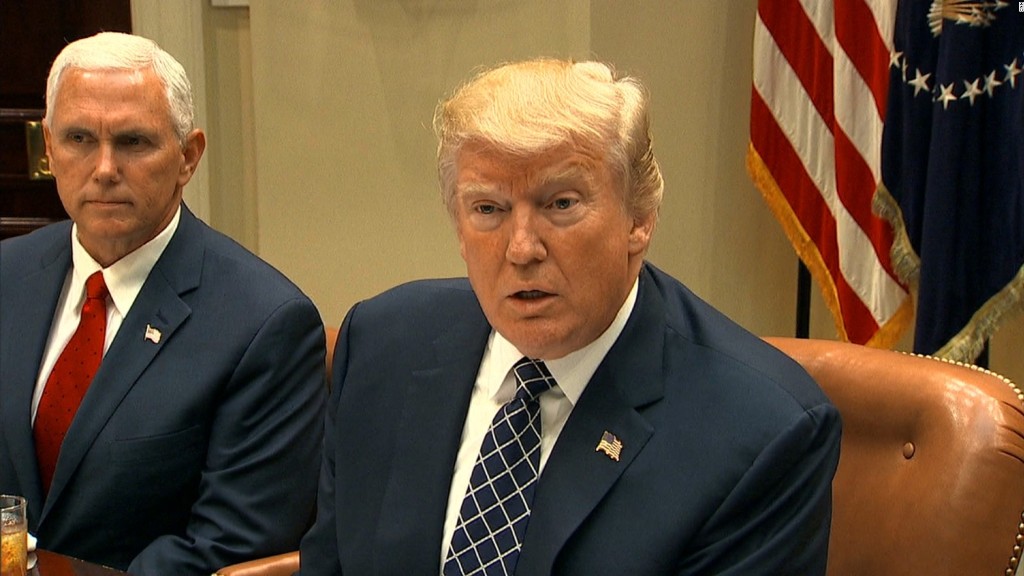
Senate Republicans are finally voting to repeal Obamacare.
But the effort has splintered, with the chamber's leaders pushing multiple ways to get the job done.
The Senate narrowly approved a motion to begin the health care debate on Tuesday. Hours later, the Senate failed to approve one repeal and replace bill that would have included a controversial amendment pushed by Texas Senator Ted Cruz. That proposal would have allowed insurers that sell Obamacare policies to also offer plans that don't adhere to all of the law's rules, including those that protect people with pre-existing conditions.
Senators will consider several more ways to dismantle Obamacare in coming days. It remains to be seen whether any of them will have enough votes to pass.
Related: Senate rejects proposal to repeal and replace Obamacare
Here's a cheat sheet of what to expect.
LET'S REPEAL BUT WAIT TO REPLACE
The Senate is expected to vote midday Wednesday on a bill that would repeal Obamacare, but delay its implementation for two years to give lawmakers time to come up with a replacement.
The bill is modeled on 2015 legislation that was passed by both chambers before being vetoed by then-President Obama.
The current iteration would effectively get rid of the individual and employer mandates now and dismantle Obamacare in 2020 by eliminating the federal subsidies that help people afford individual coverage. It would end Medicaid expansion starting in 2020.
It would also repeal taxes on the wealthy, health insurers, medical device makers and others, as well as defund Planned Parenthood for one year.
But the legislation would wreak havoc on consumers. It would leave 32 million more people uninsured by 2026 than under current law, according to a Congressional Budget Office analysis. Premiums would nearly double over the decade.
What's more, three-quarters of the nation would live in areas with no insurers participating in the individual market by 2026 -- leaving many without an option if they do not have employer-provided or government health insurance, such as Medicare or Medicaid.
Related: 32 million more people would be uninsured under new repeal bill
LET'S JUST REPEAL THE MANDATES
A new "skinny repeal" plan emerged this week. It calls for eliminating the individual and employer mandate, as well as the tax on medical device makers.
The Senate has yet to release specific details on this concept. CBO scored a similar plan two years ago and estimated that it would leave 15 million more people uninsured over a decade, as compared to current law, and cause premiums to spike 20%.
LET'S REPEAL AND REPLACE NOW
Senators may also take up a version of the bill to repeal and replace Obamacare that Republicans first unveiled in late June.
Titled the Better Care Reconciliation Act, that legislation would eliminate the mandates, but continue the federal subsidies that help consumers buy policies. Under the GOP bill, however, the assistance would be less generous and be tied to skimpier plans.
It would eliminate enhanced federal funding for Medicaid expansion and curtail support for the overall program. The bill would shed many of Obamacare's taxes, but keep the two levies on the wealthy.
The bill also called for defunding Planned Parenthood for a year and for penalizing those who let their coverage lapse. But the Senate parliamentarian said these provisions violated the chamber's rules for passage with just a majority. Same goes for letting insurers charge older enrollees more compared to younger ones.
The parliamentarian has yet to give her opinion on whether lawmakers can include a measure that would give states control over which benefits insurers must cover.
Related: 22 million fewer Americans insured under Senate GOP bill
Some 22 million more people would be uninsured by 2026 than under Obamacare, if a recent version of the bill passed, the CBO said. Average premiums would be about 25% lower at that time.
It's unclear whether any of these proposals can muster enough support among Republicans to garner the 51 votes required for passage.
If GOP senators manage to get behind a bill, the effort will then move to negotiations with the House in a conference committee.


